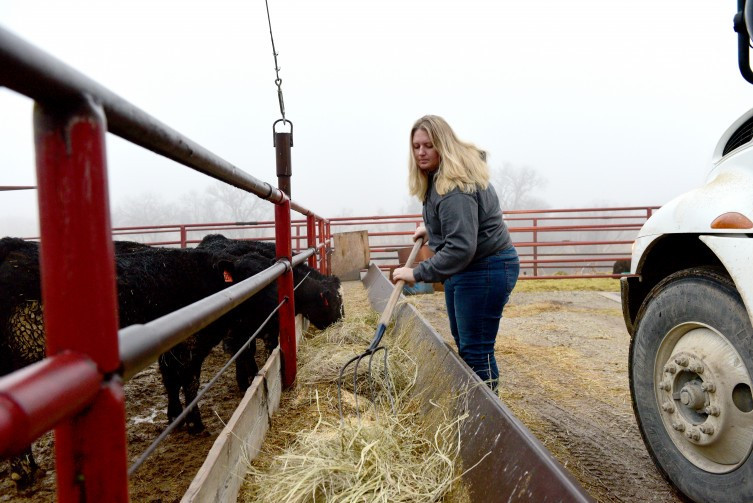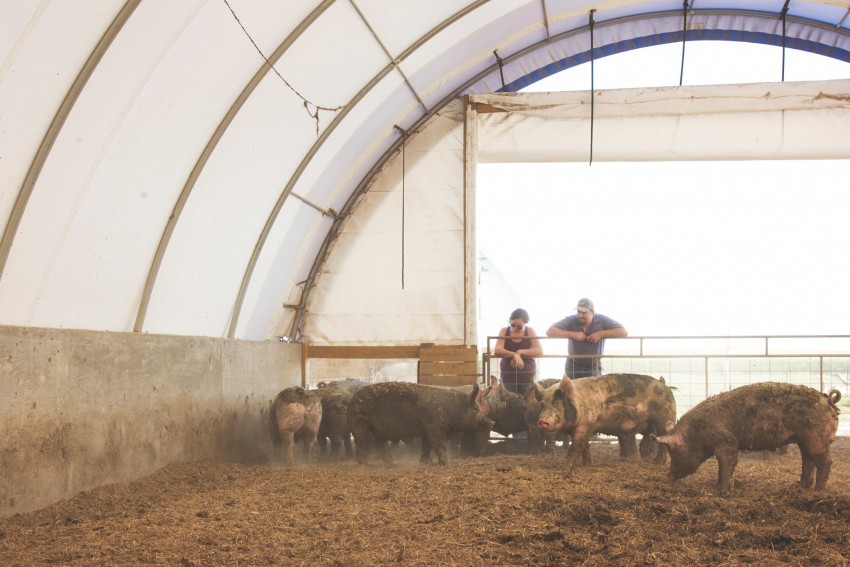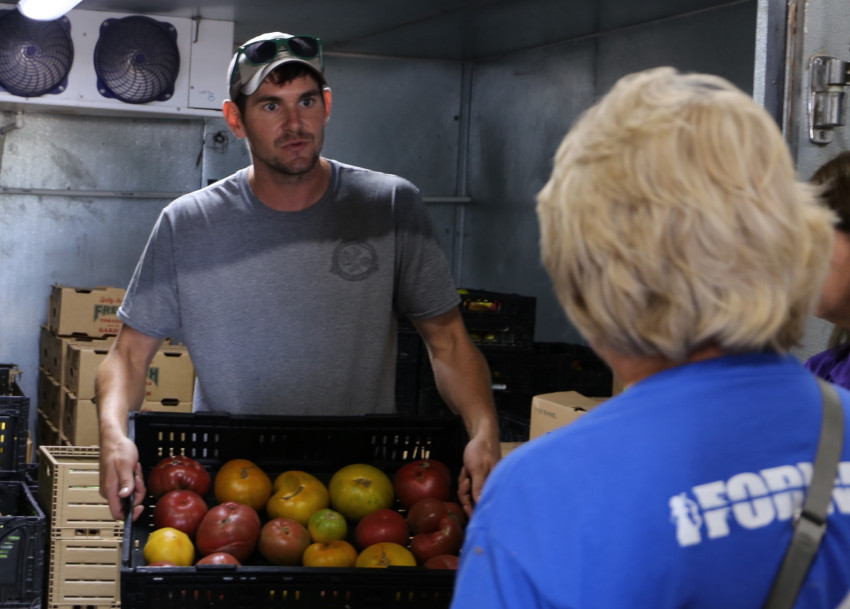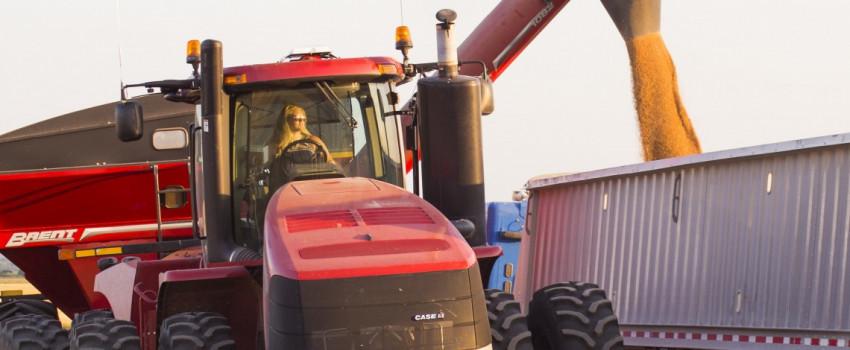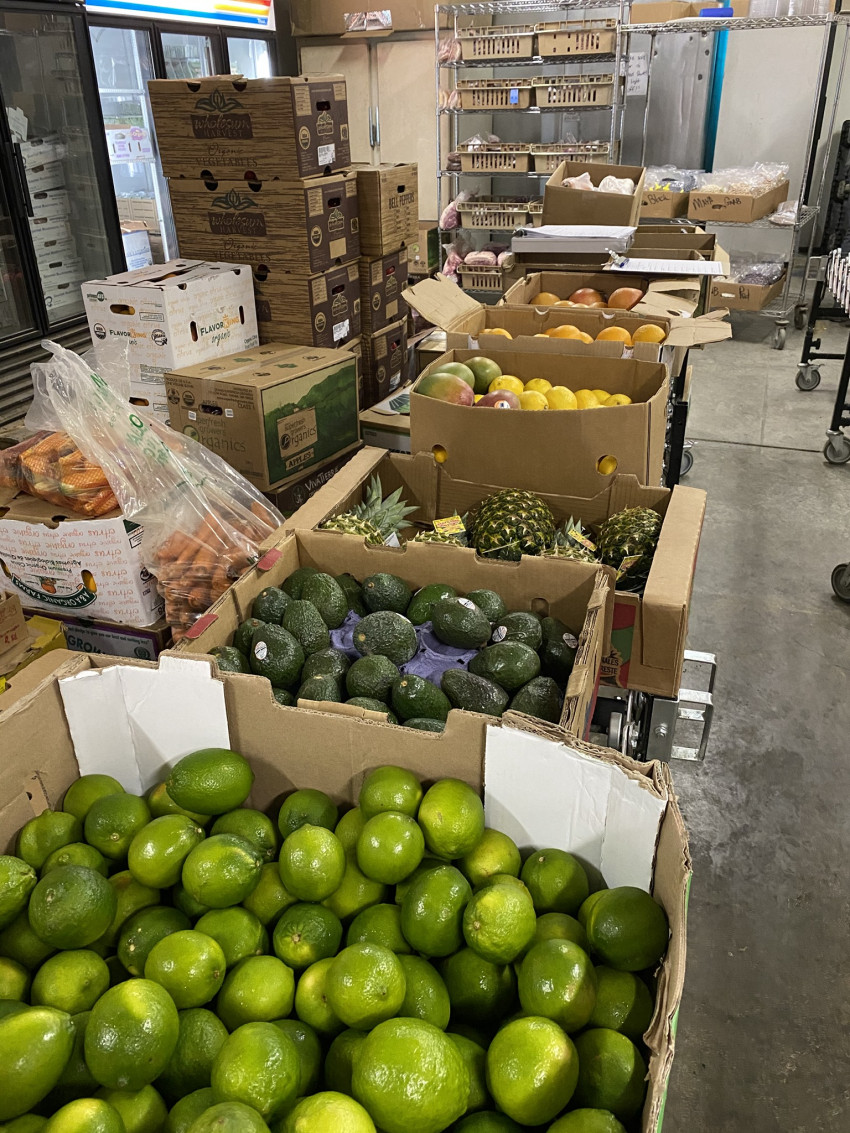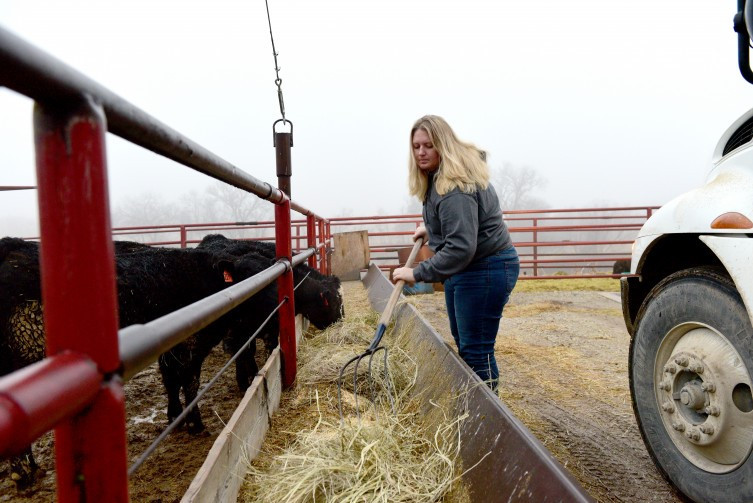By Greg Doering on April 3, 2020
Consumers making direct connections with farmers, ranchers during pandemic
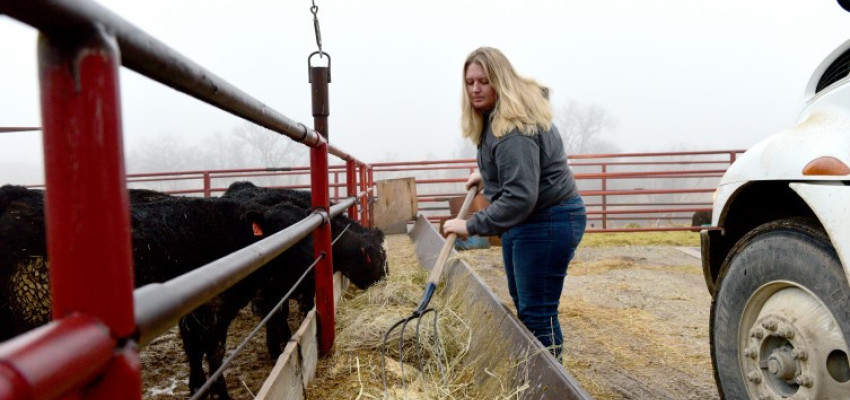
If there’s a silver lining in the COVID-19 pandemic for Kansas farmers and ranchers, it may just be in the new connections they’re forging with consumers. Growers with the ability to sell directly to the public believe the virus is forever changing the nature of food buying.
“People are starting to realize their food isn’t grown in the back of a store,” Lyon County farmer and rancher Jacquelyne Leffler says. “The first thing I hear on the phone is, ‘I’ve never done this before. Can you explain how it works?’”
Leffler has been running a custom beef business, Leffler Prime Performance, near Americus since 2015. Starting about mid-March, orders began taking off as more people stayed home and grocery supply chains struggled to keep shelves stocked.
That’s about the same time Scott Thellman who runs Juniper Hill Farms outside of Lawrence noticed a dramatic shift.
“We not only grow local produce, we’ve also got a line of national organic produce we distribute,” Thellman says of his operation. “We just all of a sudden were inundated with orders because national wholesalers couldn’t keep up with demand.”
BOOMING BUSINESS
Leffler says she typically sells 10 to 15 head a year in her custom beef business, with the busy times falling in August, around Christmas and then a small bump in February. In a nearly two-week span, she sold 20 head, mainly through Facebook and word of mouth.
“I’ve yet to ever pay for marketing,” she says.
The calls come from about a 100-mile radius, which includes Manhattan, Topeka and Wichita.
The calls also have hit R Family Farms in Lebanon, where Kaden and Emily Roush raise pigs marketed to restaurants and directly to customers. While the restaurant business has fallen off, the Roushes’ ecommerce business, which wasn’t really a focus before, has nearly tripled.
“I think we did maybe 35 or 40 orders throughout all of 2019,” Kaden says. “We’re well above 100 orders in just the last three weeks.”
Thellman partnered with a friend who runs a meat distribution company to build out an ecommerce website in about 24 hours.
“We had to do something to serve our community – making sure people had access to good food,” Thellman says. “It’s pretty pathetic looking, but it’s on its way.”
The site, www.sunflowerprovisions.com, offers local delivery to Lawrence, but people outside the city have discovered it and are traveling from Kansas City, Baldwin and Ottawa to pick up orders.
“Our hope is we can continue this on after this pandemic slows down a little bit,” Thellman says. “It might be a good source for all things local and regional.”
The growth has been fast and furious, which led Thellman to build out more storage space over the course of a few days.
“We didn’t think it would happen as quickly, but we outgrew our warehouse we were starting to fulfill in about the second time we packed boxes,” he says. “I spent all weekend building a cold storage unit, so I’ve got my mechanical contractors out running all the conduit and getting ready for the refrigeration aspects. It’s that farmer mentality – get done what needs to get done to get it done.”
ON THE JOB
Thellman says he’s hired two new employees to help fulfill orders and is working to hire additional help, though there have been a couple of bumps.
Juniper Hill Farms is certified through two U.S. Department of Agriculture programs, Good Agricultural Practices and Good Handling Practices. Thellman says both are good certifications to have in the middle of a pandemic because employees are trained on proper hygiene practices. The downside is Kansas State University can no longer provide the training for new workers to become certified because of the pandemic.
Thellman says he’s working on becoming a trainer so he can help get new hires up to speed.
Leffler’s sales also have had an impact on her local processing plant, which handles the butchering and packing.
“He told me a couple days ago I’m the reason his employees are getting paid right now,” she says.
EYE ON THE FUTRUE
Leffler sells cattle by the quarter, half or whole, which equates to 138, 277 or 554 pounds of beef to the consumer. The finished product includes hamburger, roasts and steaks all for a little less than $5 per pound once the cost of the animal, processing and packaging is factored in.
“I’ve never gotten rich doing this,” she says. “It’s just something I enjoy. I’m just charging a fraction over market price to justify my cost hauling the animal and my time taking the phone calls.”
Kaden says R Family Farms has taken a similar approach.
“We are trying to do everything we can think of to give us the opportunity to retain these customers,” he says. “They’re buying from us now because of current events. We’ve not changed our prices any from a year ago. In fact, when this started, we were running a spring sale of 15 percent off orders.”
All of the growers see an opportunity well beyond the current sales boom. Thellman believes the pandemic is remaking the entire food industry.
“I think with this change in the world, we’re going to see more attention to local and more appreciation for sourcing,” he says. “I didn’t want to start an online store. Then we saw the need and we did it. I think it’s going to shift the consumer’s mind about food. Especially if they’re pulling it from a source they know is a decent quality and decent price.”
SAFETY MEASURES
Leffler says some of her sales have been to other small businesses looking to source food for their employees.
“They’re calling saying, ‘Hey, my employees are getting off work and they’re going to the grocery store where they can’t find food,’” she says.
Thellman has taken similar steps, offering boxes of staples to workers so they can minimize the chances of getting sick. It’s also a concern as he ramps up hiring to meet demand.
“You hesitate to bring more people in because you don’t know what their social distancing practices have been recently,” he says. “We’re really trying to minimize any potential issues.”
CONSUMER CONNECTION
While production agriculture will continue to provide safe sustenance for the majority of shoppers, these niche producers are seeing the benefits of connecting directly with consumers.
Kaden says farmers are doing what they’ve always done – provide healthy, nutritious food for people to feed their families.
“We like being that anchor for customers to go to with questions,” he says. “A lot of our business is focused on building that relationship with our customers, allowing them to get to know us.”
Thellman, who’s now sourcing produce from around the country to sell alongside his locally grown salad mixes, is waiting for the first Kansas-grown tomato of the season.
“The moment there’s a local tomato to put on the website, we’re sure as heck going to be having those (for sale),” he says.
There’s only one item Thellman has had to deny customers who’ve asked about recently.
“There’s six weeks a year you’re allowed to eat sweet corn,” he says. “That starts about the First of July.”

